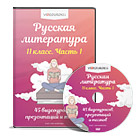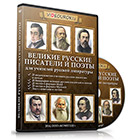|
(Улица. Накрытый
стол.
Несколько пирующих мужчин и
женщин.)
Молодой
человек.
Почтенный председатель! я напомню О человеке, очень нам знакомом, О том, чьи шутки, повести смешные, Ответы острые и замечанья, Столь едкие в их важности забавной, Застольную беседу оживляли И разгоняли мрак, который ныне Зараза, гостья наша, насылает На самые блестящие умы. Тому два дня наш общий хохот славил Его рассказы; невозможно быть, Чтоб мы в своем веселом пированье Забыли Джаксона. Его здесь кресла Стоят пустые, будто ожидая Весельчака — но он ушел уже В холодные подземные жилища... Хотя красноречивейший язык Не умолкал еще во прахе гроба, Но много нас еще живых, и нам Причины нет печалиться. Итак, Я предлагаю выпить в его память С веселым звоном рюмок, с восклицаньем, Как будто б был он жив.
Председатель.
Он выбыл первый Из круга нашего. Пускай в молчанье Мы выпьем в честь его.
Молодой человек.
Да будет так.
(Все пьют молча.)
Председатель.
Твой голос, милая, выводит звуки Родимых песен с диким совершенством: Спой, Мери, нам уныло и протяжно, Чтоб мы потом к веселью обратились Безумнее, как тот, кто от земли Был отлучен каким-нибудь виденьем.
Мери (поет).
Было время, процветала В мире наша сторона; В воскресение бывала Церковь божия полна; Наших деток в шумной школе Раздавались голоса, И сверкали в светлом поле Серп и быстрая коса.
Ныне церковь опустела; Школа глухо заперта; Нива праздно перезрела; Роща темная пуста; И селенье, как жилище Погорелое, стоит,— Тихо всё. Одно кладбище Не пустеет, не молчит.
Поминутно мертвых носят, И стенания живых Боязливо бога просят Успокоить души их. Поминутно места надо, И могилы меж собой, Как испуганное стадо, Жмутся тесной чередой!
Если ранняя могила Суждена моей весне — Ты, кого я так любила, Чья любовь отрада мне,— Я молю: не приближайся К телу Дженни ты своей, Уст умерших не касайся, Следуй издали за ней.
И потом оставь селенье! Уходи куда-нибудь, Где б ты мог души мученье Усладить и отдохнуть. И когда зараза минет, Посети мой бедный прах; А Эдмонда не покинет Дженни даже в небесах!
Председатель.
Благодарим, задумчивая Мери, Благодарим за жалобную песню! В дни прежние чума такая ж, видно, Холмы и долы ваши посетила, И раздавались жалкие стенанья По берегам потоков и ручьев, Бегущих ныне весело и мирно Сквозь дикий рай твоей земли родной; И мрачный год, в который пало столько Отважных, добрых и прекрасных жертв, Едва оставил память о себе В какой-нибудь простой пастушьей песне, Унылой и приятной... Нет! ничто Так не печалит нас среди веселий, Как томный, сердцем повторенный звук!
Мери.
О, если б никогда я не певала Вне хижины родителей своих! Они свою любили слушать Мери; Самой себе я, кажется, внимаю, Поющей у родимого порога — Мой голос слаще был в то время — он Был голосом невинности...
Луиза.
Не в моде Теперь такие песни! Но всё ж есть Еще простые души: рады таять От женских слез, и слепо верят им. Она уверена, что взор слезливый Ее неотразим,— а если б то же О смехе думала своем, то верно Всё б улыбалась. Вальсингам хвалил Крикливых северных красавиц: вот Она и расстоналась. Ненавижу Волос шотландских этих желтизну.
Председатель.
Послушайте: я слышу стук колес!
(Едет телега,
наполненная мертвыми
телами. Негр
управляет ею.)
Ага! Луизе дурно; в ней, я думал, По языку судя, мужское сердце. Но так-то — нежного слабей жестокий, И страх живет в душе, страстьми томимой! Брось, Мери, ей воды в лицо. Ей лучше.
Мери.
Сестра моей печали и позора, Приляг на грудь мою.
Луиза (приходя
в чувство).
Ужасный демон Приснился мне: весь черный, белоглазый... Он звал меня в свою тележку. В ней Лежали мертвые — и лепетали Ужасную, неведомую речь... Скажите мне: во сне ли это было? Проехала ль телега?
Молодой человек.
Ну, Луиза, Развеселись — хоть улица вся наша Безмолвное убежище от смерти, Приют пиров ничем невозмутимых, Но знаешь? эта черная телега Имеет право всюду разъезжать — Мы пропускать ее должны! Послушай Ты, Вальсингам: для пресеченья споров И следствий женских обмороков, спой Нам песню — вольную, живую песню — Не грустию шотландской вдохновенну, А буйную, вакхическую песнь, Рожденную за чашею кипящей.
Председатель.
Такой не знаю, но спою вам гимн Я в честь чумы,— я написал его Прошедшей ночью, как расстались мы. Мне странная нашла охота к рифмам Впервые в жизни. Слушайте ж меня: Охриплый голос мой приличен песне.—
Многие.
Гимн в честь чумы! послушаем его! Гимн в честь чумы! прекрасно! bravo! bravo!
Председатель
(поет).
Когда могущая Зима, Как бодрый вождь, ведет сама На нас косматые дружины Своих морозов и снегов,— Навстречу ей трещат камины, И весел зимний жар пиров.
*
Царица грозная, Чума Теперь идет на нас сама И льстится жатвою богатой; И к нам в окошко день и ночь Стучит могильною лопатой... Что делать нам? и чем помочь?
*
Как от проказницы Зимы, Запремся также от Чумы, Зажжем огни, нальем бокалы; Утопим весело умы И, заварив пиры да балы, Восславим царствие Чумы.
*
Есть упоение в бою, И бездны мрачной на краю, И в разъяренном океане, Средь грозных волн и бурной тьмы, И в аравийском урагане, И в дуновении Чумы.
*
Всё, всё, что гибелью грозит, Для сердца смертного таит Неизъяснимы наслажденья — Бессмертья, может быть, залог! И счастлив тот, кто средь волненья Их обретать и ведать мог.
*
Итак,— хвала тебе, Чума! Нам не страшна могилы тьма, Нас не смутит твое призванье! Бокалы пеним дружно мы, И девы-розы пьем дыханье,— Быть может... полное Чумы.
(Входит старый
священник.)
Священник.
Безбожный пир, безбожные безумцы! Вы пиршеством и песнями разврата Ругаетесь над мрачной тишиной, Повсюду смертию распространенной! Средь ужаса плачевных похорон, Средь бледных лиц молюсь я на кладбище А ваши ненавистные восторги Смущают тишину гробов — и землю Над мертвыми телами потрясают! Когда бы стариков и жен моленья Не освятили общей, смертной ямы,— Подумать мог бы я, что нынче бесы Погибший дух безбожника терзают И в тьму кромешную тащат со смехом.
Несколько
голосов.
Он мастерски об аде говорит! Ступай, старик! ступай своей дорогой!
Священник.
Я заклинаю вас святою кровью Спасителя, распятого за нас: Прервите пир чудовищный, когда Желаете вы встретить в небесах Утраченных возлюбленные души — Ступайте по своим домам!
Председатель.
Дома У нас печальны — юность любит радость.
Священник.
Ты ль это, Вальсингам? ты ль самый тот, Кто три тому недели на коленах Труп матери, рыдая, обнимал И с воплем бился над ее могилой? Иль думаешь, она теперь не плачет, Не плачет горько в самых небесах, Взирая на пирующего сына, В пиру разврата, слыша голос твой, Поющий бешеные песни, между Мольбы святой и тяжких воздыханий? Ступай за мной!
Председатель.
Зачем приходишь ты Меня тревожить? Не могу, не должен Я за тобой идти. Я здесь удержан Отчаяньем, воспоминаньем страшным, Сознаньем беззаконья моего, И ужасом той мертвой пустоты, Которую в моем дому встречаю,— И новостью сих бешеных веселий, И благодатным ядом этой чаши, И ласками (прости меня господь) Погибшего — но милого созданья... Тень матери не вызовет меня Отселе — поздно,— слышу голос твой, Меня зовущий,— признаю усилья Меня спасти... старик! иди же с миром; Но проклят будь, кто за тобой пойдет!
Многие.
Bravo, bravo! достойный председатель! Вот проповедь тебе! пошел! пошел!
Священник.
Матильды чистый дух тебя зовет!
Председатель
(встает).
Клянись же мне, с поднятой к небесам Увядшей, бледною рукой,— оставить В гробу навек умолкнувшее имя! О, если б от очей ее бессмертных Скрыть это зрелище! Меня когда-то Она считала чистым, гордым, вольным — И знала рай в объятиях моих... Где я? Святое чадо света! вижу Тебя я там, куда мой падший дух Не досягнет уже...
Женский голос.
Он сумасшедший,— Он бредит о жене похороненной!
Священник.
Пойдем, пойдем...
Председатель.
Отец мой, ради бога, Оставь меня!
Священник.
Спаси тебя господь! Прости, мой сын.
(Уходит. Пир
продолжается.
Председатель остается
погруженный
в глубокую задумчивость.)
|
The street A long table covered with glasses. A party of young men and women carousing.
Young Man. I rise to give, most noble President, The memory of a man well known to all, Who by keen jest, and merry anecdote, Sharp repartee, and humorous remark Most biting in its solemn gravity, Much cheer'd our out-door table, and dispeled The fogs which this rude visitor the Plague Oft breathed across the brightest intellect. But two days past, our ready laughter chaced His various stories ; and it cannot be That we have in our gamesome revelries Forgotten Harry Wentworth. His chair stands Empty at your right hand as if expecting That jovial wassailer but he is gone Into cold narrow quarters. Well, I deem The grave did never silence with its dust A tongue more eloquent ; but since 'tis so, And store of boon companions yet survive, There is no reason to be sorrowful ; Therefore let us drink unto his memory With acclamation, and a merry peal Such as in life he loved.
Master of Revels. 'Tis the first death
Hath been amongst us, therefore let us drink His memory in silence.
Young Man. Be it so.
[ They all rise, and drink their glasses in silence."]
Master of Revels. Sweet Mary Gray ! Thou hast a silver voice, And wildly to thy native melodies Can tune it's flute-like breath sing us a song, And let it be, even 'mid our merriment, Most sad, most slow, that when its music dies, We may address ourselves to revelry, More passionate from the calm, as men leap up To this world's business from some heavenly dream.
MARY GRAY'S SONG.
I walk'd by mysel' owre the sweet braes o 'Yarrow, When the earth wi' the go wans o' July was drest ;
But the sang o' the bonny burn sounded like sorrow, Round ilka house cauld as a last simmer's nest.
I look'd thro' the lift o' the blue smiling morning, But never ae wee cloud o' mist could I see
On its way up to heaven the cottage adorning,
Hanging white owre the green o' it's sheltering tree.
By the outside I ken'd that the in was forsaken, That nae tread o' footsteps was heard on the floor ;
O loud craw'd the cock whare was nane to awaken, And the wild-raven croak'd on the seat by the door !
Sic silence sic lonesomeness, oh ! were bewildering I I heard nae lass singing when herding her sheep ;
I met nae bright garlands o* wee rosy children
Dancing on to the school-house just wakened frae sleep.
I past by the school-house when strangers were coming, Whose windows with glad faces seem'd all alive ;
Ae moment I hearken'd, but heard nae sweet humming, For a night o' dark vapour can silence the Hive.
I past by the pool whare the lasses at daw'ing
Used to bleach their white garments wi' dafifm and din ;
But the foam in the silence o' nature was fa'ing, And nae laughing rose loud thro* the roar o' the linn.
I gaed into a small town when sick o' my roaming Whare ance play'd the violthe tabor and flute;
Twas the hour lov'd by Labour, the saft-smiling gloaming, Yet the Green round the Cross-stane was empty and mute.
To the yellow-flower'd meadow and scant rigs o' tillage The sheep a' neglected had come frae the glen;
The cushat-dow coo'd in the midst o' the village, And the swallow had flown to the dwellings o' men!
Sweet Denholm ! not thus, when I lived in thy bosom, Thy heart lay so still the last night o' the week;
Then nane was sae weary that love would nae rouse him, And grief gaed to dance with a laugh on his cheek.
Sic thoughts wet my eyne as the moonshine was beaming On the kirk-tower that rose up sae silent and white;
The wan ghastly light on the dial was streaming, But the still finger tauld not the hour o' the night* The mirk-time past slowly in siching- and weeping,
I waken'd and nature lay silent in mirth ; Owr'e a* holy Scotland the Sabbath was sleeping^
Arid heaven in beauty came down on the earth.
The morning smiled on but nae kirk-bell was ringing, Nae plaid or blue bonnet came down frae the hill;
The kirk-door was shut, but nae psalm-tune was singing, And I miss'd the wee voices sae sweet and sae shrill.
I look'd owr'e the quiet o* Death's empty dwelling, The lav'rock walk'd mute 'mid the sorrowful scene,
And fifty brown hillocks wi* fresh mould were swelling Owre the kirk-yard o' Denholm last simmer sae green.
The infant had died at the breast o' its mither;
The cradle stood still near the mitherless bed; At play the bairn sunk in the hand o* its brither;
At the fauld on the mountain the shepherd lay dead.
Oh ! in spring time 'tis eerie, when winter is over, And birds should be glinting ow're forest and lea,
When the lint-white and mavis the yellow leaves cover, And nae blackbird sings loud frae the tap o' his tree,
But eerier far when the spring-land rejoices
And laughs back to heaven with gratitude bright,
To hearken ! and nae whare hear sweet human voices! When man's soul is dark in the season o' light !
Master of Revels. We thank thee, sweet one ! for thy mournful song.
It seems, in the olden time, this very Plague
Visited thy hills and vallies, and the voice
Oflamentation wail'd along the streams
That now flow on through their wild paradise,
Murmuring their songs of joy. All that survive
In memory of that melancholy year
When died so many brave and beautiful,
Are some sweet mournful airs, some shepherd's lay
Most touching in simplicity, and none
Fitter to make one sad amid his mirth
Than the tune yet faintly singing through our souls.
Mary Gray. O ! that I ne'er had sung it but at home Unto my aged parents ! to whose ear Their Mary's tones were always musical. I hear my own self singing o'er the moor, Beside my native cottage, most unlike The voice which Edward Walsingham has prais'd,
It is the angel- voice of innocence.
2d Woman. I thought this cant were out of fashion now.
But it is well ; there are some simple souls,
Even yet, who melt at a frail maiden's tears,
And give her credit for sincerity.
She thinks her eyes quite killing while she weeps.
Thought she as well of smiles, her lips would pout
With a perpetual simper. Walsingham
Hath prais'd these crying beauties of the north,
So whimpering is the fashion. How I hate
The dim dull yellow of that Scotish hair !
Master of Revels. Hush ! hush ! is that the sound of wheels I hear ?
[The Dead-cart passes by, driven by a Negro."] Ha \ dost thou faint, Louisa ! one had thought That railing tongue bespoke a mannish heart. But so it ever is. The violent Are weaker than the mild, and abject fear Dwells in the heart of passion. Mary Gray, Throw water on her face. She now revives.
Mary Gray. O sister of my sorrow and my shame ! Lean on my bosom. Sick must be your heart After a fainting-fit so like to death.
Louisa, (recovering.) I saw a horrid demon in my dream !
With sable visage and white-glaring eyes, He beckon'd on me to ascend a cart Fill'd with dead bodies, muttering all the while An unknown language of most dreadful sounds. What matters it ? I see it was a dream. Fray did the dead-cart pass ?
Young Man. Come, brighten up -
Louisa ! Though this street be all our own, A silent street that we from death have rented, Where we may hold our orgies undisturbed, You know those rumbling wheels are privileged, And we must bide the nuisance. WalsinghanV To put an end to bickering, and these fits Of fainting that proceed from female vapours, Give us a song ; a free and gladsome song ; None of those Scottish ditties fram'd of sighs, But a true English Bacchanalian song, By toper chaunted o'er the flowing bowl.
Master of Revels. I have none such ; but I will sing a song
Upon the Plague. I made the words last night, After we parted : a strange rhyming-fit Fell on me 5 'twas the first time in my life. But you shall have it, though my vile crack' d voice Wo'nt mend the matter much.
Many voices. A song on the Plague !
A song on the Plague ! Let's have it ! bravo ! bravo !
SONG.
Two navies meet upon the waves That round them yawn like op'ning graves ; The battle rages ; seamen fall, And overboard go one and all ! The wounded with the dead are gone ; But Ocean drowns each frantic groan, And, at each plunge into the flood, Grimly the billow laughs with blood. Then, what although our Plague destroy Seaman and landman, woman, boy ? When the pillow rests beneath the head, Like sleep he comes, and strikes us dead. What though into yon Pit we go, Descending fast, as flakes of snow ? What matters body without breatli ? No groan disturbs that hold of death.
Chorus.
Then, leaning on this snow-white breast, I sing the praises of the Pest ! If me thou would' st this night destroy. Come, smite me in the arms of Joy*
Two armies meet upon the hill ; They part, and all again is. still. No ! thrice ten thousand men are lying Of cold, and thirst, and hunger dying. While the wounded soldier rests his head, About to die upon the dead, What shrieks salute yon dawning light ? 'Tis Fire that comes to aid the Fight ! All whom our Plague destroys by day, His chariot drives by night away. And sometimes o'er a church -yard wall His banner hangs, a sable pall ! Where in the light by Hecate shed - With grisly smile he counts the dead, And piles them up a trophy high In honour of his victory.
Then leaning, fyc.
King of the aisle ! and church-yard cell ! Thy regal robes become thee well. With yellow spots, like lurid stars Prophetic of throne-shattering wars, Bespangled is its night-like gloom, As it sweeps the cold damp from the tomb.
Thy hand doth grasp no needless dart, One finger touch benumbs the heart. If thy stubborn victim will not die, Thou roll'st around thy bloodshot eye, And Madness leaping in his chain With giant buffet smites the brain, Or Idiocy with drivelling laugh Holds out her strong-drugg'd bowl to quaff, And down the drunken wretch doth lie Unsheeted in the cemetery.
Then leaning, $c.
Thou ! Spirit of the burning breath Alone deserv'st the name of Death ! Hide Fever ! hide thy scarlet brow ; Nine days thou linger'st o'er thy blow, Till the leach bring water from the spring, And scare thee off on drenched wing. Consumption ! waste away at will ! In warmer climes thou fail'st to kill, And rosy Health is laughing loud As off thou steal'st with empty shroud ! Ha ! blundering Palsy ! thou art chill ! But half the man is living still ; One arm, one leg, one cheek, one side In antic guise thy wrath deride. But who may 'gainst thy power rebel, King of the aisle 1 and church-yard cell. Then leaning, fyc.
To Thee O Plague ! I pour my song, Since thou art come I wish thee long !
Thou strik'st the lawyer 'mid his lies,
The priest 'mid his hypocrisies.
The miser sickens at his hoard,
And the gold leaps to its rightful lord.
The husband, now no longer tied,
May wed a new and blushing bride,
And many a widow slyly weeps
O'er the grave where her old dotard sleeps,
While love shines through her moisten'd eye
On yon tall stripling gliding by.
'Tis ours who bloom in vernal years
To dry the love-sick maiden's tears,
Who turning from the relics cold,
In a new swain forgets the old.
Then leaning, fyc.
Enter an old grey-headed Priest.
Priest. O impious table ! spread by impious hands ! Mocking with feast and song and revelry The silent air of death that hangs above it, A canopy more dismal than the Pall ! Amid the church-yard darkness as I stood Beside a dire interment, circled round By the white ghastly faces of despair, That hideous merriment disturb'd the grave, And with a sacrilegious violence Shook down the crumbling earth upon the bodies Of the unsheeted dead. But that the prayers Of holy age and female piety Did sanctify that wide and common grave,
I could have thought that hell's exulting fiends With shouts of devilish laughter dragged away Some harden'd atheist's soul unto perdition.
Several voices. How well he talks of hell ! Go on, old
boy ! The devil pay* his tithes yet he abuses him.
Priest. Cease, I conjure you, by the blessed blood Of Him who died for us upon the Cross, These most unnatural orgies. As ye hope To meet in heaven the souls of them ye lov'd, Destroy'd so mournfully before your eyes, Unto your homes depart.
Master of Revets. Our homes are dull And youth loves mirth.
Priest. O Edward Walsingham !
Art thou that groaning pale-fac'd man of tears Who three weeks since knelt by thy mother's corpse, And kiss'd the solder'd coffin, and leapt down With rage-like grief into the burial vault, Crying upon it's stone to cover thee From this dim darken'd world ? Would she not weep, Weep even in heaven, could she behold her son Presiding o'er unholy revellers, And tuning that sweet voice to frantic songs That should ascend unto the throne of grace 'Mid sob-broken words of prayer !
Young Alan. Why ! we can pray
Without a priest pray long and fervently Over the brimming bowl. Hand him a glass.
Master of Revels. Treat his grey hairs with reve- rence.
Priest. Wretched boy !
This white head must not sue to thee in vain ! Come with the guardian of thy infancy, And by the hymns and psalms of holy men Lamenting for their sins, we will assuage This fearful mirth akin to agony, And in its stead, serene as the hush'd face Of thy dear sainted parent, kindle hope And heavenly resignation. Come with me. Young Man. They have a design against the hundredth
Psalm.
Oh ! Walsingham will murder cruelly " All people that on earth do dwell." Suppose we sing it here I know the drawl.
Master of Revels, (silencing him, and addressing the Priest.) Why cam'st thou hither to disturb me thus ? I may not, must not go ! Here am I held By hopelessness in dark futurity, By dire remembrance of the past, by hatred And deep contempt of my own worthless self, By fear and horror of the lifelessness That reigns throughout my dwelling, by the new And frantic love of loud-tongued revelry, By the blest poison mantling in this bowl, And, help me Heaven ! by the soft balmy kisses Of this lost creature, lost, but beautiful Even in her sin ; nor could my mother's ghost Frighten me from this fair bosom. 'Tis too late ! I hear thy warning voice I know it strives To save me from perdition, body and soul. Beloved old man, go thy way in peace, But curst be these feet if they do follow thee.
Several Voices. Bravo ! bravissimo ! Our noble presi- dent ! Done with that sermonizing off oif off.
Priest. Matilda's sainted spirit calls on thee !
Master of Revels, (starting distractedly Jrom his seat) Didst thou not swear, with thy pale wither'd hands Lifted to Heaven, to let that doleful name Lie silent in the tomb for evermore ?
that a wall of darkness hid this sight From her immortal eyes ! She my betrothed Once thought my spirit lofty, pure, and free, And on my bosom felt herself in Heaven.
What am I now ? (looking up) O holy child of light,
1 see thee sitting where my fallen nature Can never hope to soar !
Female Voice. The fit is on him.
Fool ! thus to rave about a buried wife ! See ! how his eyes are fix'd.
Master of Revels. Most glorious star !
Thou art the spirit of that bright Innocent ! And there thou shinest with upbraiding beauty
On him whose soul hath thrown at last away Not the hope only, but the wish of Heaven. Priest. Come, Walsingham ! Master of Revels. O holy father ! go.
For mercy's sake, leave me to my despair.
Priest. Heaven pity my dear son. Farewell ! fare- well !
[The Priest 'walks mournfully a*way.~ |

















